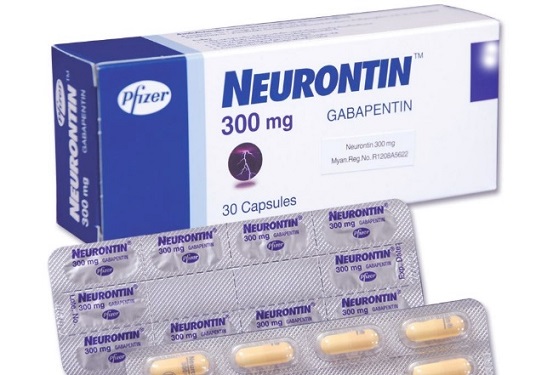Popular Painkiller Prescribed Often by Doctors Linked to Long-Term Brain Decline in Younger Adults
Nikhil Prasad Fact checked by:Thailand Medical News Team Jul 13, 2025 7 months, 2 weeks, 6 hours, 33 minutes ago
Medical News: A new study has raised serious concerns about gabapentin, a widely used nerve pain and seizure medication, suggesting it may increase the risk of dementia and cognitive decline—especially in adults under 65. The research, conducted by experts from Case Western Reserve University School of Medicine in Ohio, found that those who used gabapentin regularly were significantly more likely to develop memory problems over time.
 Popular Painkiller Prescribed Often by Doctors Linked to Long-Term Brain Decline in Younger Adults
Popular Painkiller Prescribed Often by Doctors Linked to Long-Term Brain Decline in Younger Adults
Gabapentin, the active ingredient in Neurontin, was originally patented by Warner-Lambert (now part of Pfizer). Pfizer, the American pharma giant held the initial patents for gabapentin and its uses, but these patents have since expired, allowing for generic versions of the drug to be produced. However, Pfizer is still the largest manufacturer and promoter of gabapentin globally.
This
Medical News report highlights that patients with chronic low back pain who received at least six prescriptions for gabapentin had a 29 percent higher risk of being diagnosed with dementia and an 85 percent greater chance of developing mild cognitive impairment. These risks were even higher in adults aged 35 to 64, many of whom are typically not considered at risk for age-related brain decline.
Worrying Trends in Younger Adults
The study analyzed data from more than 26,000 patients who were prescribed gabapentin, comparing their health outcomes over a decade with a similar group of people who had not taken the drug. After carefully adjusting for other medical conditions and demographics, the results revealed that patients aged 35 to 64 had more than double the risk of developing dementia. For mild cognitive impairment—an early form of memory loss—the risk tripled.
Even more alarming, the chances of developing brain-related issues increased depending on how often the drug was prescribed. Patients who received 12 or more prescriptions were 40 percent more likely to be diagnosed with dementia and 65 percent more likely to develop cognitive problems compared to those who had fewer prescriptions.
How Gabapentin Might Affect the Brain
Gabapentin works by calming overactive nerves. It is approved for treating seizures and nerve-related pain, and has become popular because it is seen as less addictive than opioids. But scientists now believe it may disrupt brain cell communication, especially over long periods, which could contribute to mental fog, memory loss, and eventually, dementia.
Although the researchers emphasized that this was an observational study and does not confirm that gabapentin directly causes dementia, the strong association cannot be ignored. The drug may impact critical pathways in the brain, including calcium channels and neurotransmitter systems, which play vital roles in memory and learning.
Doctors Urged to Monitor Patients
Gabapentin is often prescribed to pe
ople with chronic conditions such as back pain, restless leg syndrome, and nerve damage. Because it is generally considered safe, it has been used widely. But given the potential risk to brain health, researchers recommend that doctors closely monitor patients, especially younger adults who may be on the drug for years.
The researchers concluded that while gabapentin is useful for managing chronic pain, its long-term effects on the brain must be better understood. They hope their findings will lead to further studies on the possible neurological risks and encourage medical professionals to be cautious when prescribing the drug.
The findings from this large-scale study suggest that the risk of dementia increases not only with age but also with long-term use of gabapentin, especially among non-elderly adults. These results support the need for more careful prescription practices and monitoring strategies for people taking this common painkiller. Future research is urgently needed to explore whether gabapentin causes these changes or simply worsens pre-existing brain vulnerabilities. Until then, patients and doctors must weigh the benefits of gabapentin against its potential long-term risks.
The study findings were published in the peer reviewed journal: Regional Anesthesia & Pain Medicine.
https://rapm.bmj.com/content/early/2025/07/02/rapm-2025-106577
For the latest on Western Drugs, keep on logging to Thailand
Medical News.
Read Also:
https://www.thailandmedical.news/news/breaking-33-common-drugs-may-be-secretly-causing-kidney-stones-in-thousands-of-people
https://www.thailandmedical.news/news/oseltamivir-tamiflu-found-to-be-hepatoxic-and-can-cause-liver-damage-in-flu-patients
https://www.thailandmedical.news/news/deadly-blood-clots-linked-to-popular-mental-health-drug-combo-of-clozapine-and-fluvoxamine-raises-alarms
